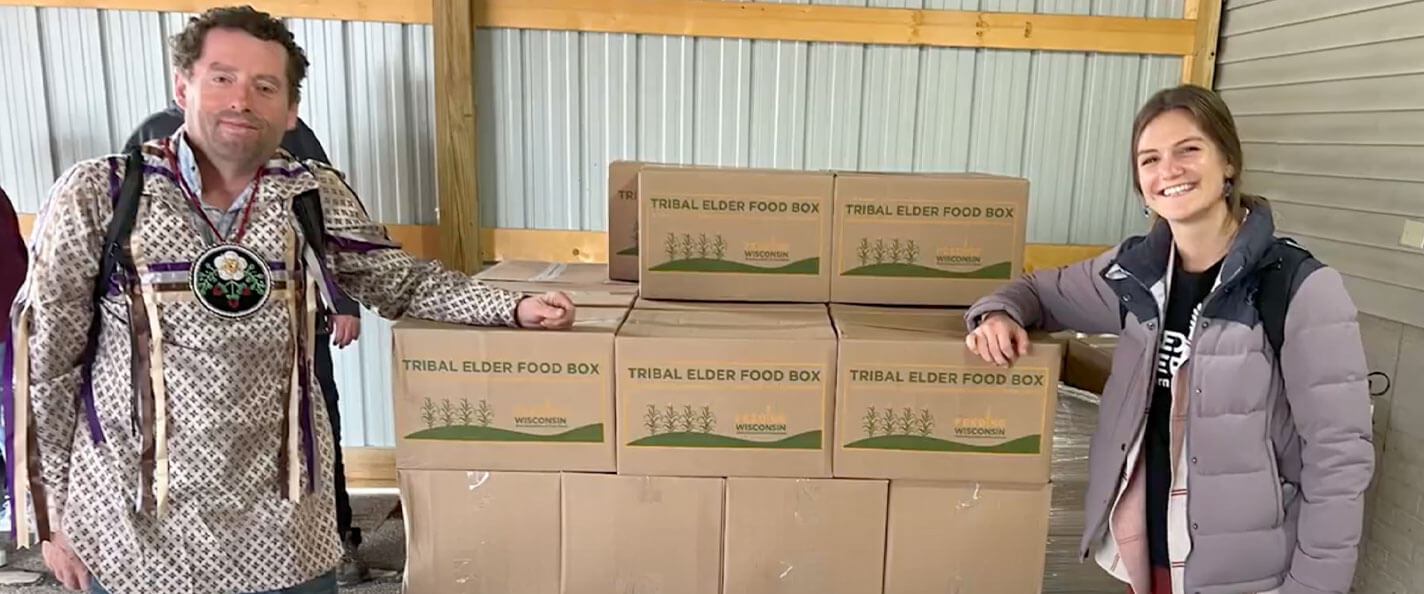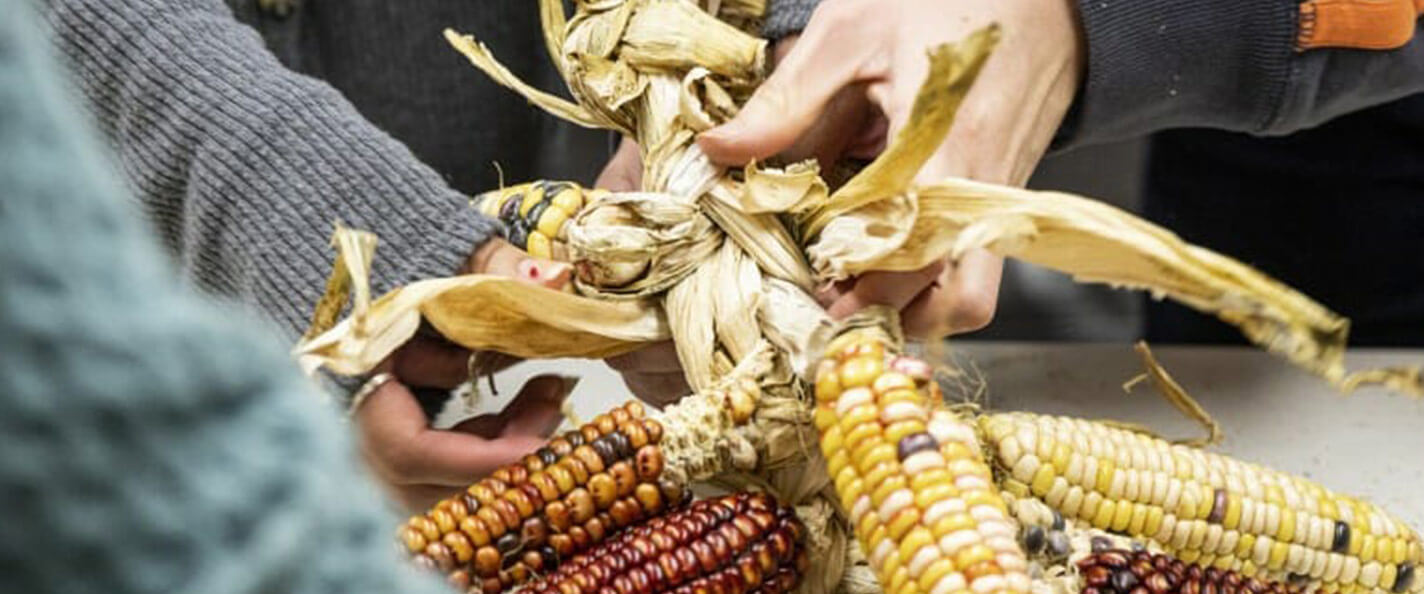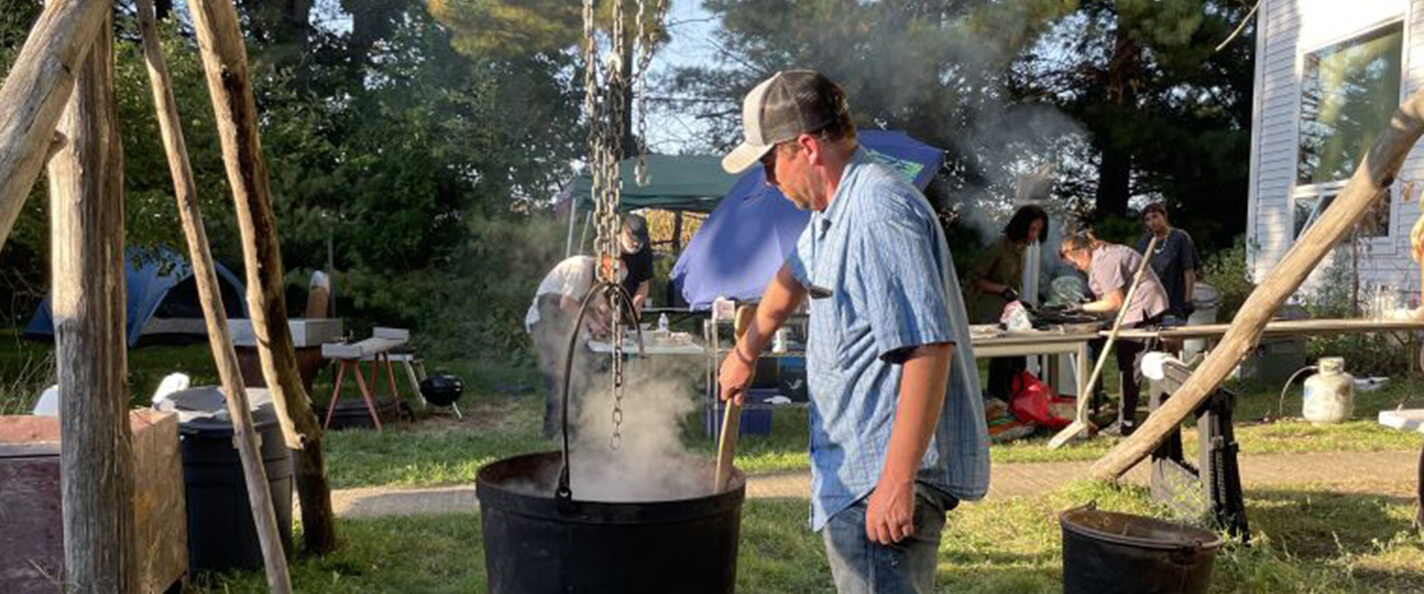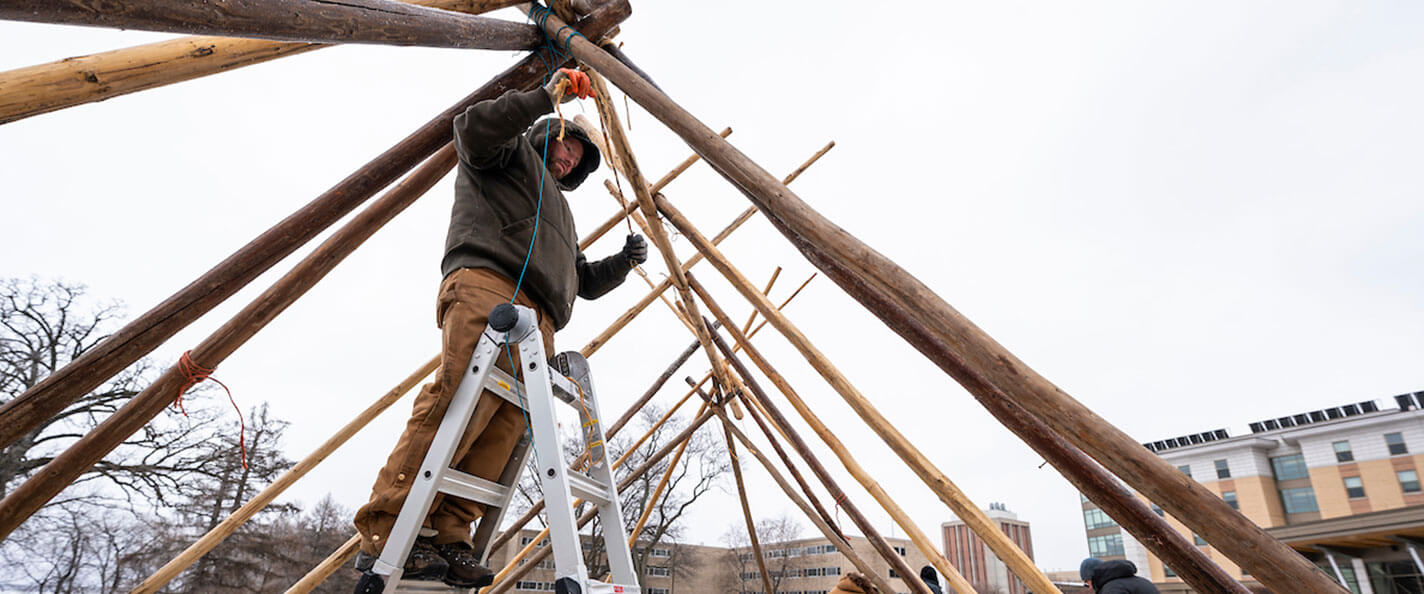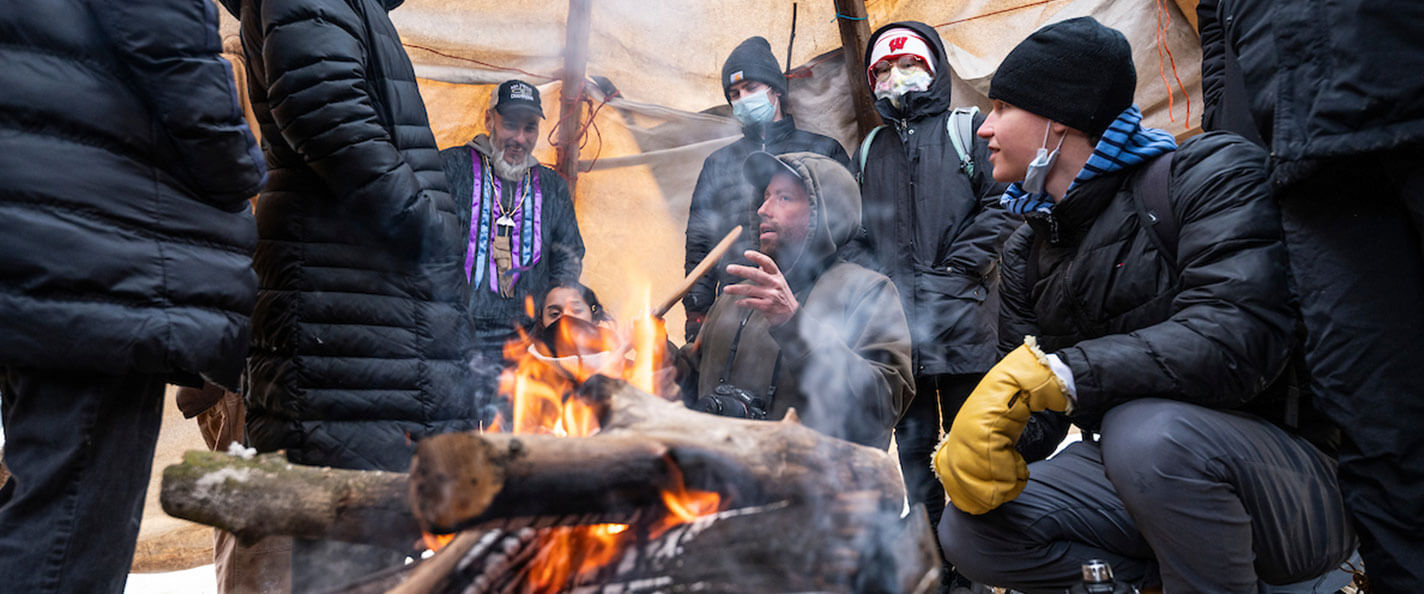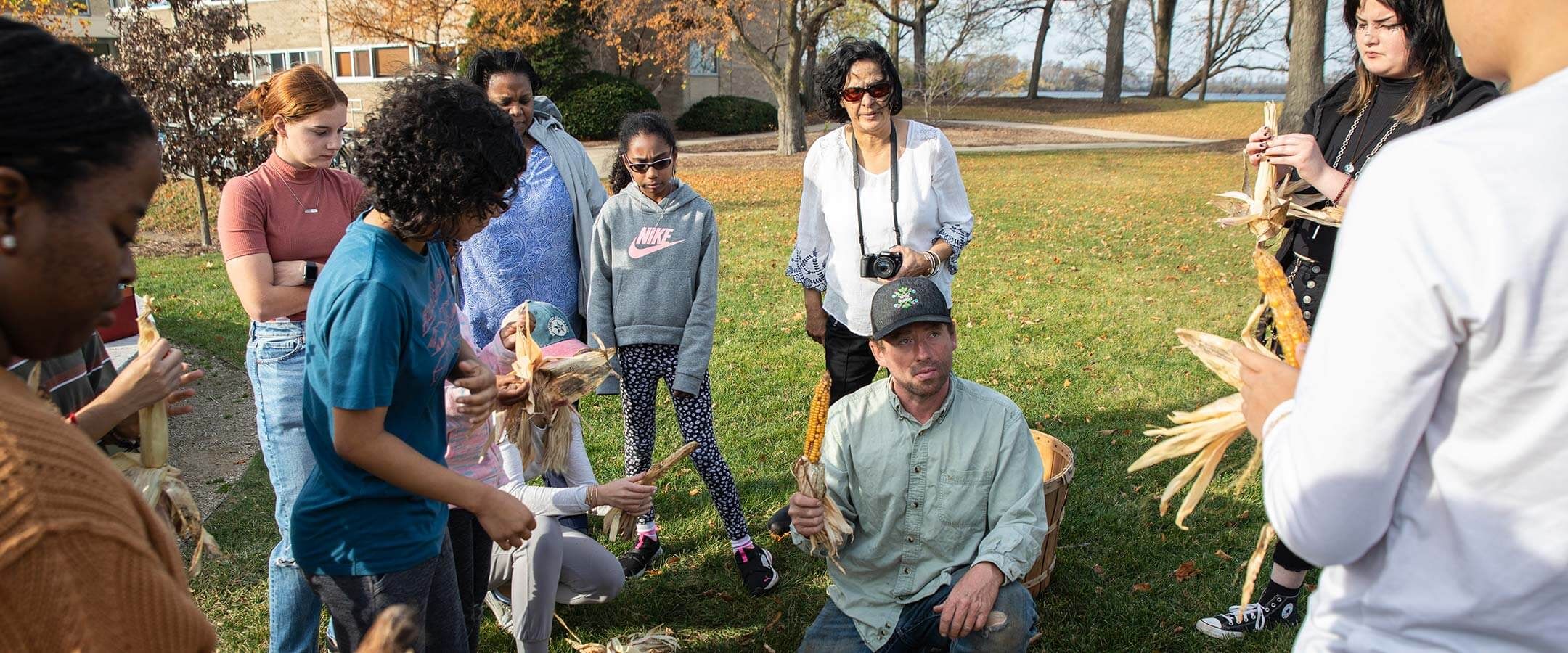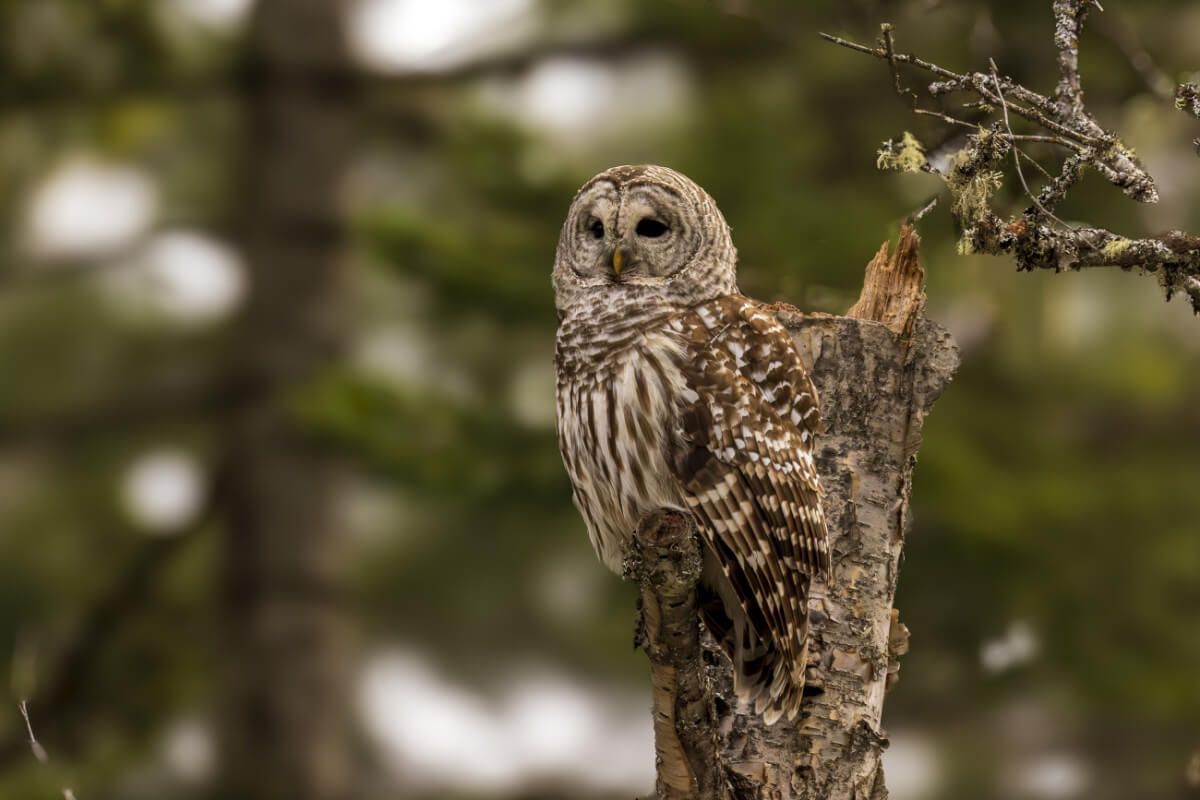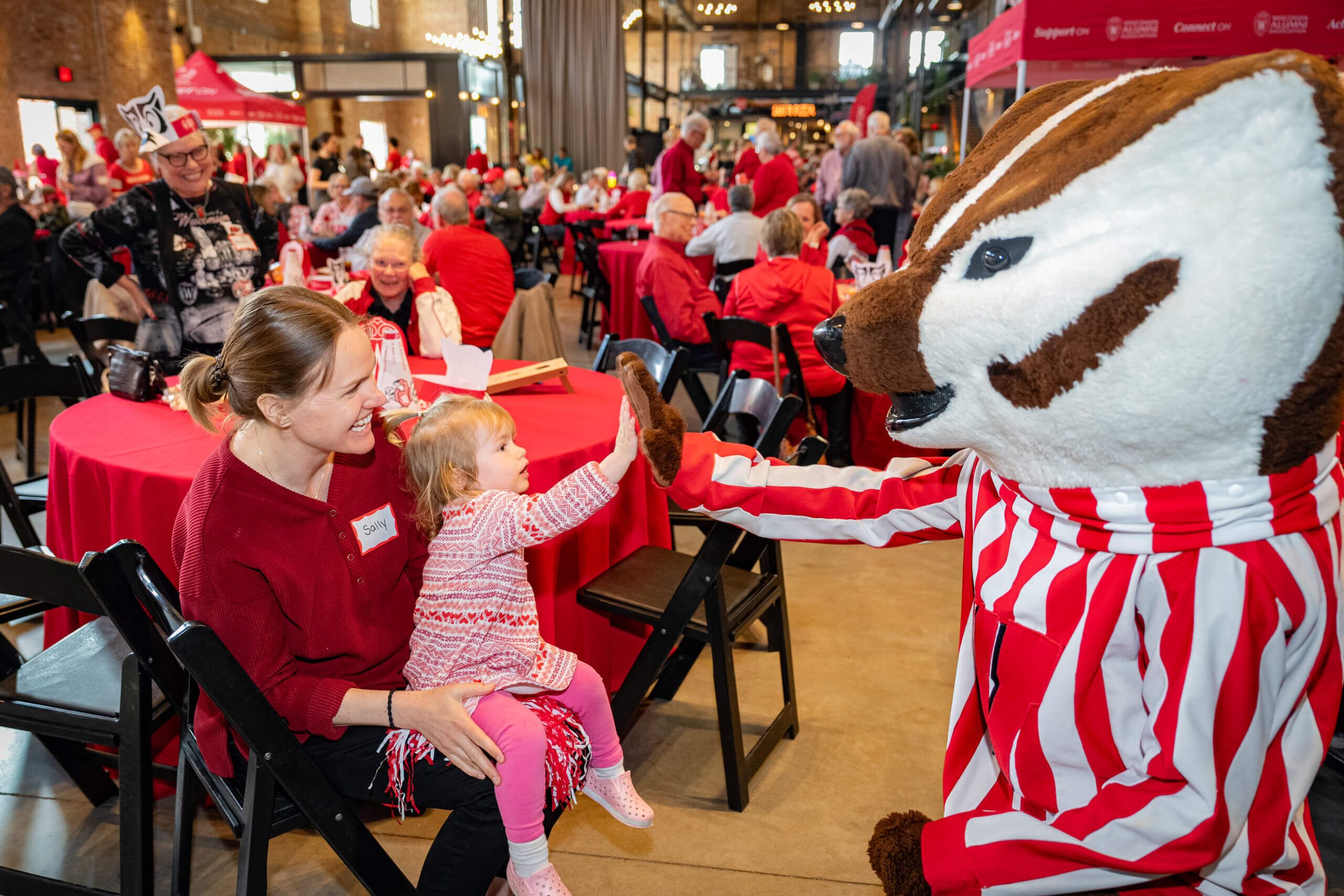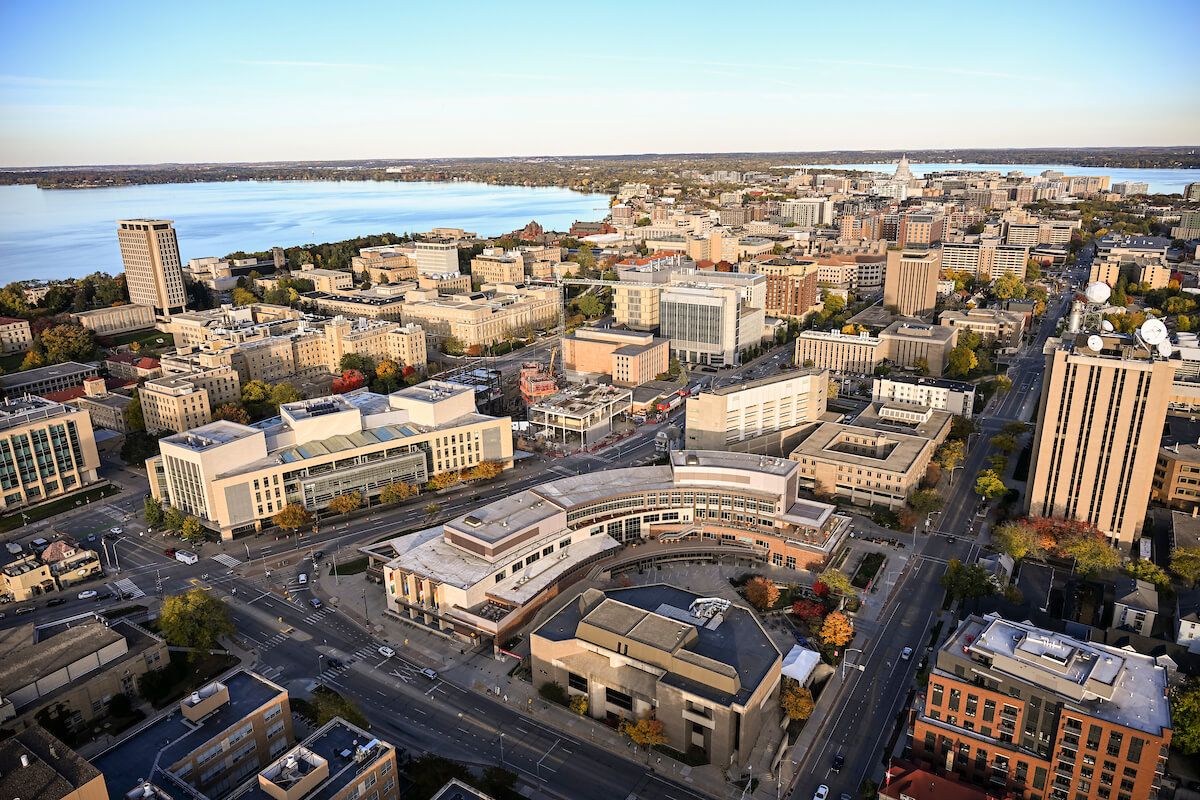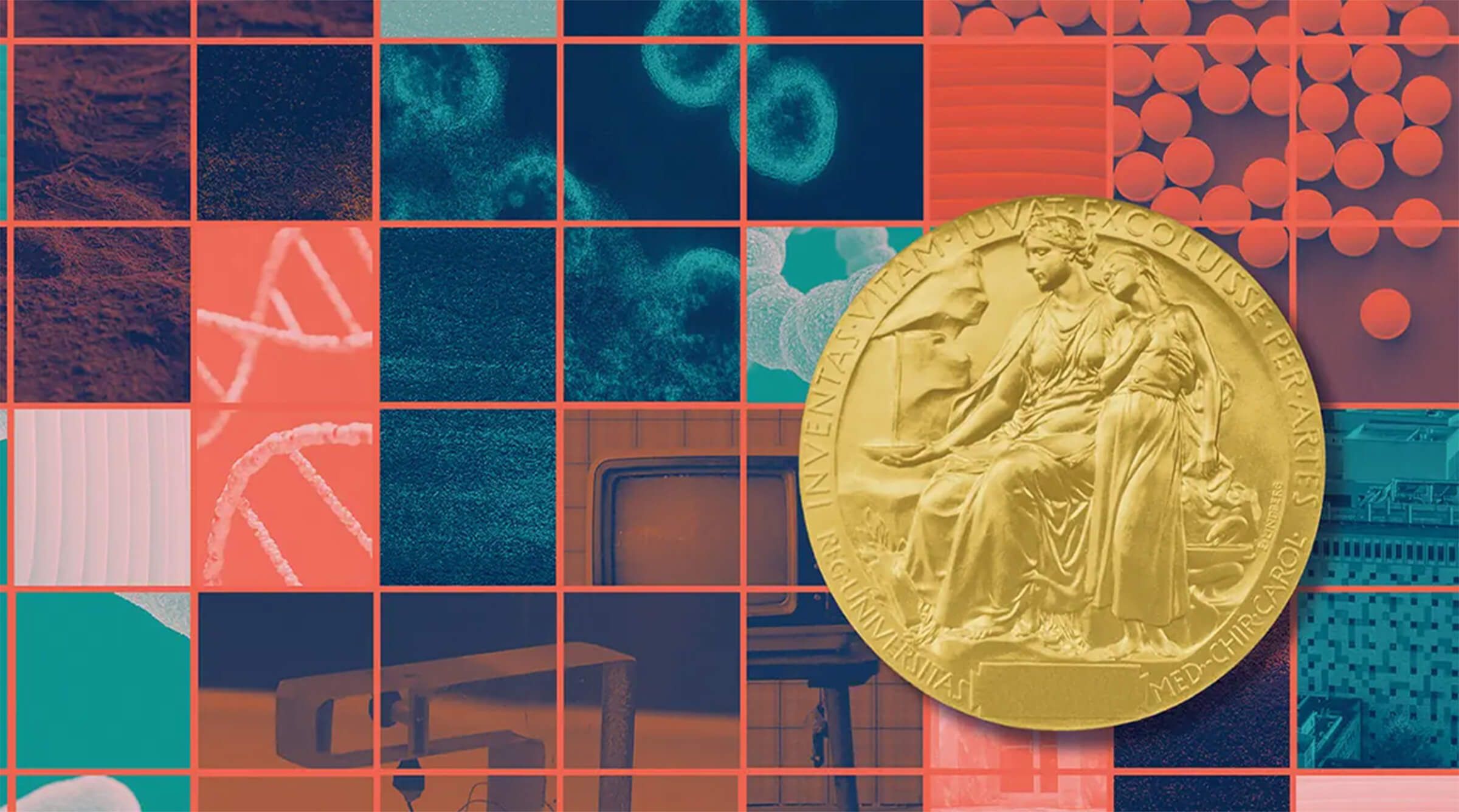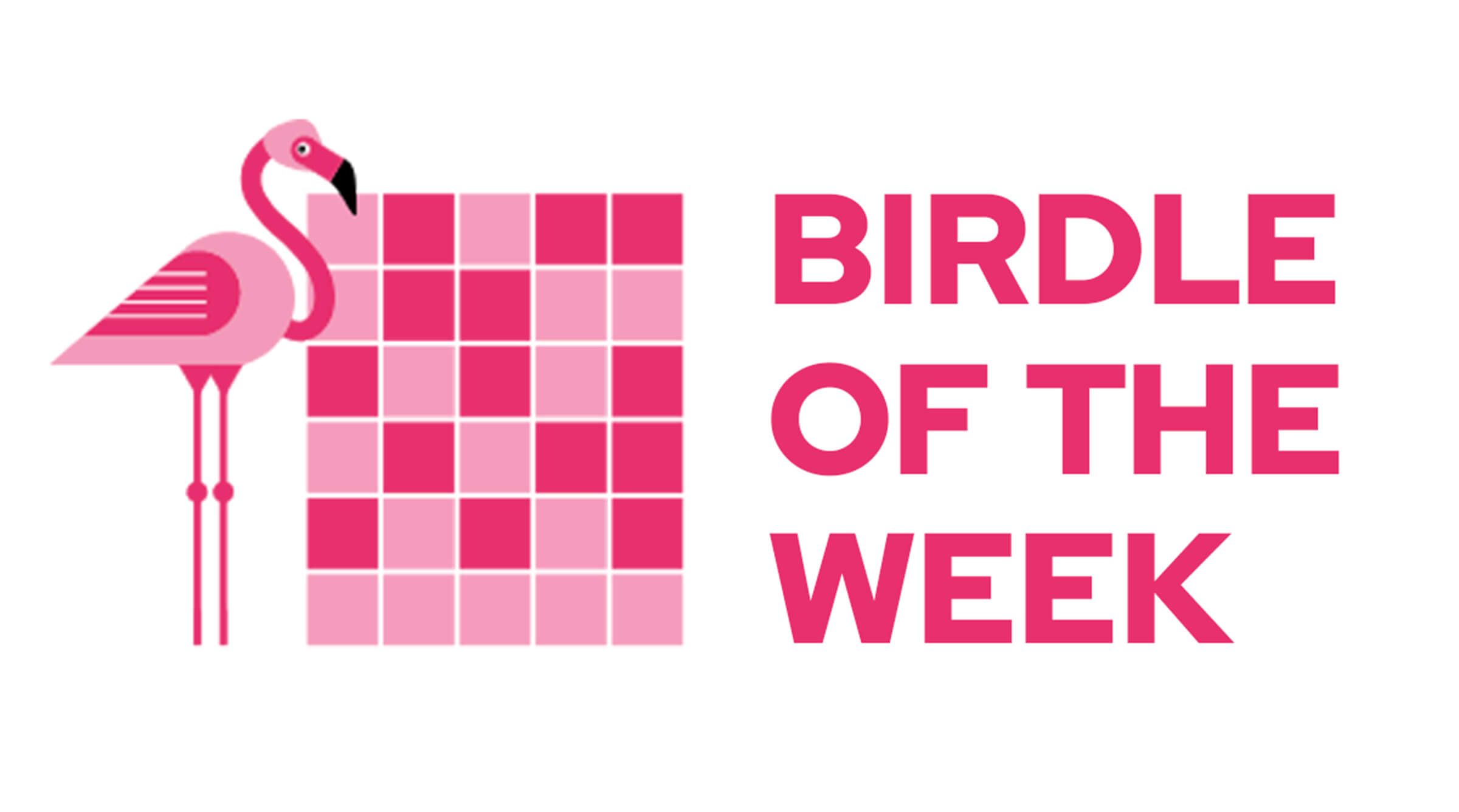When I call Dan Cornelius JD’09, I catch him after a long string of meetings as part of his job as the program outreach manager with UW Law School’s Great Lakes Indigenous Law Center. He and his colleagues had just spent the day planning for a $10 million grant from the USDA to increase the scale of traditional Indigenous agricultural practices. The grant is believed to be the largest ever received by a Universities of Wisconsin institution to work directly with Wisconsin tribes.
“[It will look at] where the university can appropriately support Indigenous food systems,” Cornelius says, “[and] how we [can] implement climate-smart solutions in a culturally appropriate manner to expand our Indigenous food production.”
As he shares this news, Cornelius pushes through his post-meeting fatigue to bring in his cows, because Cornelius doesn’t just advocate for Indigenous food producers — he is one. A member of the Oneida Nation, he grows traditional varieties of Indigenous corn, beans, and squash on his homestead, Yowela Farms. He also taps trees to produce syrup, raises livestock, and processes wild rice harvested from northern lakes, all while incorporating traditional Oneida farming practices.
Cornelius’s roles as a law scholar and as a farmer differ in practice, but their goals are the same: achieving Indigenous food sovereignty. Around the world — from the Maori people of New Zealand to the Quechua people of Peru to the tribes of North America — Indigenous people are committed to preserving their traditional crops and agricultural practices to ensure continued access to healthy, culturally relevant foods.
“Where can you get the foods that historically made up the food system of this area?” he asks. “To me, that’s a social justice and an equity issue.”
For Cornelius, this goes beyond keeping these practices alive in his own fields and working with tribes on agriculture-related legal issues. He teaches courses at the UW that offer students hands-on learning experiences in preparing and preserving Indigenous foods. He coleads a Wisconsin Rural Partnership project geared toward protecting Indigenous food sovereignty against challenges posed by climate change. He helped campus partners curate an Indigenous Research Forum in April.
Off campus, he hosts communal Harvest Dinners to showcase Indigenous crops and cuisine, and he works extensively with the Great Lakes Intertribal Food Coalition to provide tribal elders with locally grown, culturally relevant foods through the Tribal Elder Food Box Program. In 2023, the program provided more than 63,000 boxes to elders in all 11 federally recognized tribes in Wisconsin.
“To see the appreciation, the satisfaction from those elders of getting those boxes and having healthy, traditional foods in them … and to essentially be able to guarantee a market, at a fair price, for food that’s feeding our community … that’s what it’s all about,” Cornelius says.
